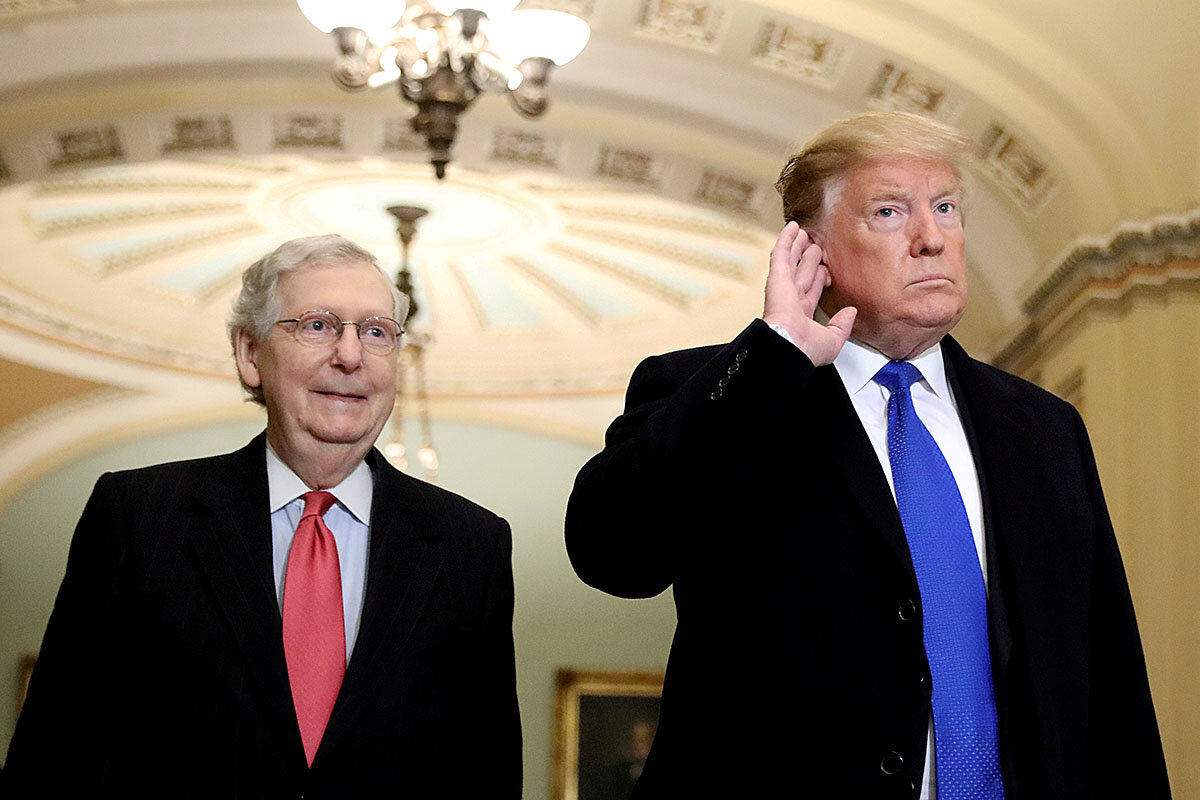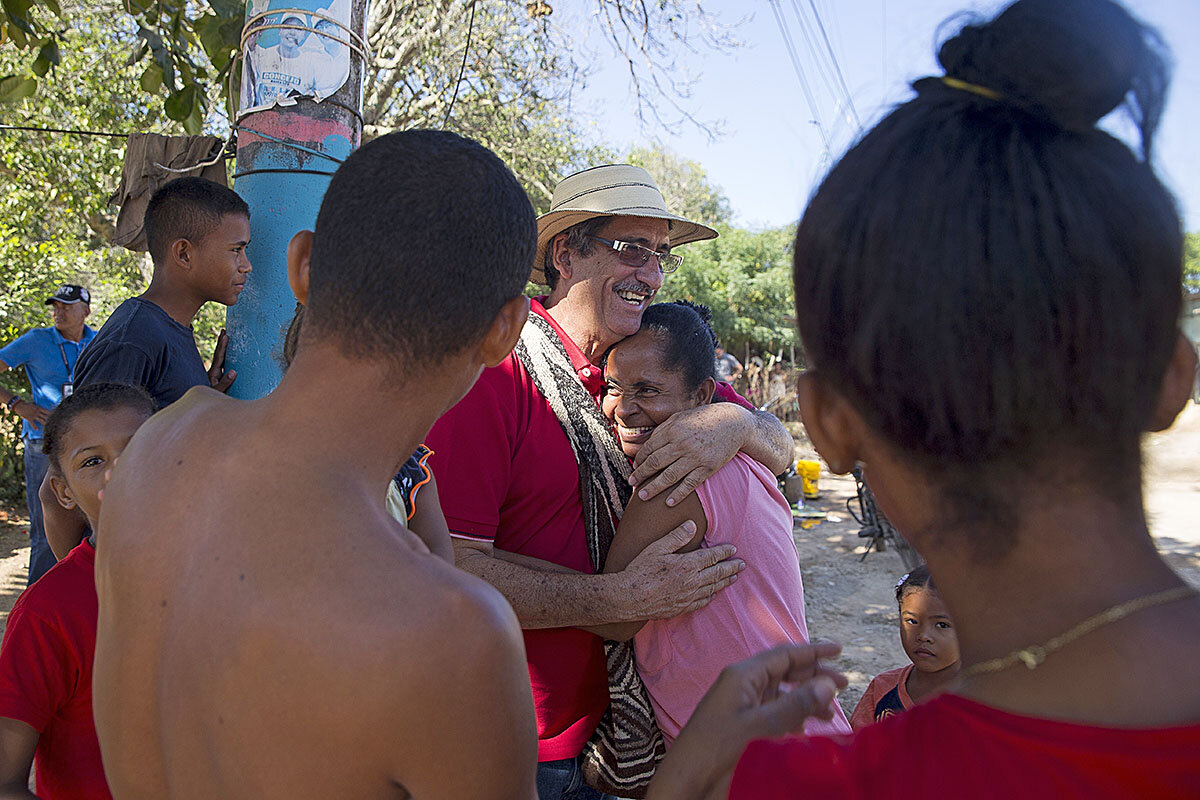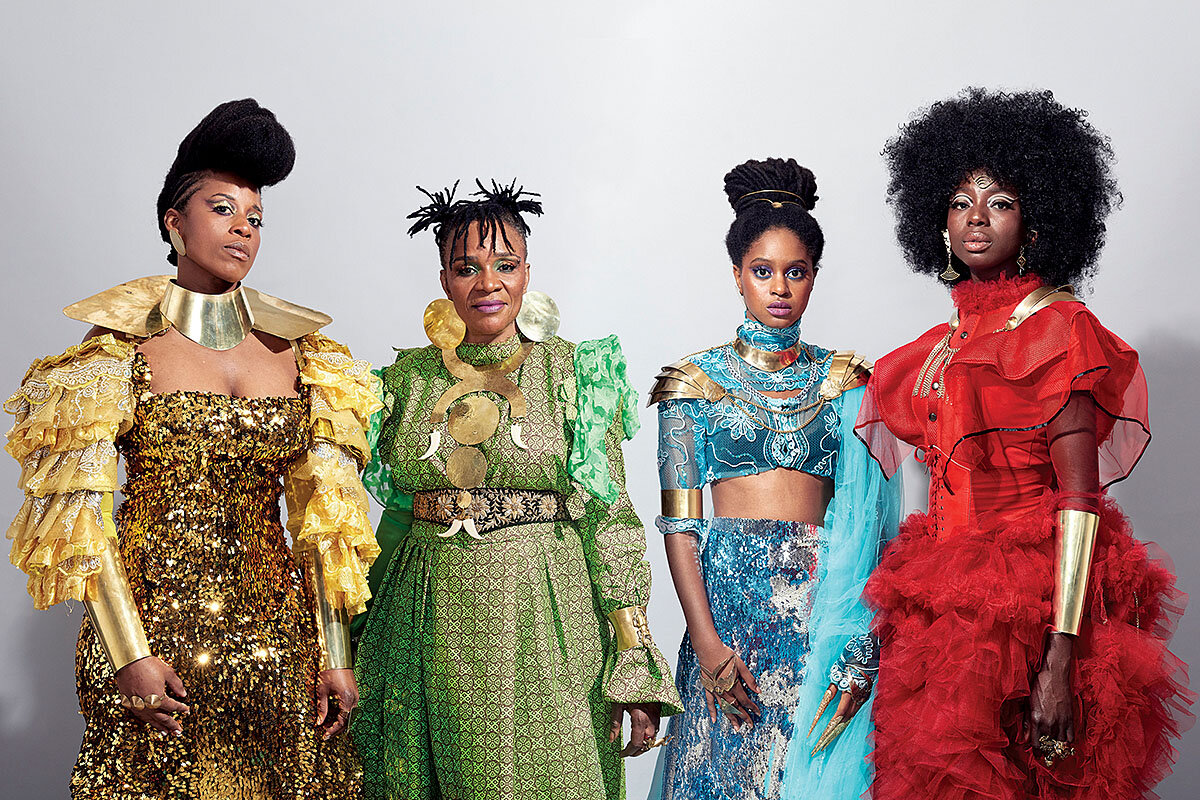The Senate impeachment trial has brought together two men with stark differences in personality and style. But they do see eye to eye on one thing: winning.
Monitor Daily Podcast
- Follow us:
- Apple Podcasts
- Spotify
- RSS Feed
- Download
 Mark Sappenfield
Mark Sappenfield
Today’s stories look at Washington’s impeachment power couple, the uncertainties about Bernie Sanders, Egypt’s new response to a Mideast crisis, a path to reconciliation in Colombia (maybe), and music empowering African women.
Last Wednesday, we hoped we were doing the responsible thing. You might have seen the video we published on members of the DeafBlind community crafting a language that speaks to their remarkable talents and perception of the world. It was genuinely moving.
When it came to identifying the community, however, our style guides pointed us to “deaf-blind,” even though producer Jingnan Peng’s conversations with the community suggested the term was outdated. To many, “deaf-blind” is medical language that dwells on their condition and its seeming limitations. “DeafBlind” speaks of their ability and agency. The word choice was more than style, it was a statement of how we saw them.
Last week, we chose “deaf-blind.” This week, we have switched.
My first day in Journalism 101, my teacher told us we would decide what was news. We were the future information gatekeepers. That vision is all but gone. You all have Google now. What the Monitor can be is a partner, working with you to bring its unique gifts to your doorstep. And that means being a partner with those whom we report on, too – and listening to the best of what they have to say.
DeafBlind speaks to “who we are,” says Debra Visser Kahn, administrator of the DeafBlind Autonomy Facebook group. “It’s our cultural identity, and we feel it best represents our community.”










